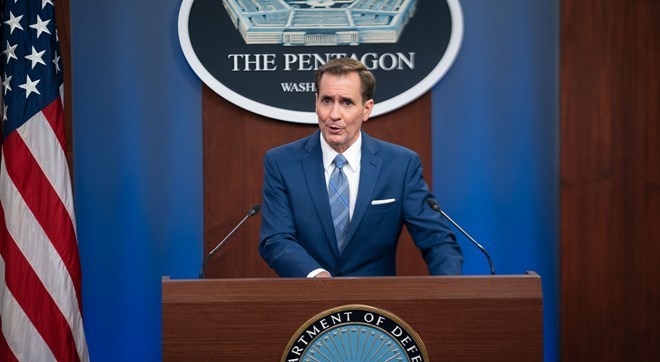
Wednesday January 17, 2024

(CN) — The White House said Tuesday that it opposes an agreement between Ethiopia and a breakaway region of Somalia, raising concerns the deal could lead to instability and hinder international counterterrorism efforts.
John Kirby, coordinator of strategic communications for the National Security Council, told reporters that the potential recognition of Somaliland by Ethiopia “threatens to disrupt the fight” against al-Shabab, an independent affiliate of al-Qaida.
“We’re certainly troubled now by what’s reportedly included,” he said of the agreement. “We support Somalia’s sovereignty and their territorial integrity, and it’s got to be respected.”
Ethiopia and Somaliland signed a memorandum of understanding Jan. 1 that reportedly would allow Ethiopia to develop a naval base on Somaliland’s coast in exchange for official recognition of the region as an independent state.
While the news has sparked tensions, there’s som confusion about the deal's exact content, because the full text hasn’t been made public. Somaliland leaders have trumpeted it as granting official recognition, while Ethiopian officials have said it only provides a framework for taking a position on the region.
Ethiopia has long sought access to the Red Sea since it became landlocked after Eritrea won its independence in 1991. That same year, Somaliland broke away from Somalia, and, although it has operated as a de facto independent state with its own currency, government and diplomats, it is not formally recognized by any country.
Somalia has threatened to go to war to stop Ethiopia from recognizing Somaliland’s sovereignty. The imbroglio raises the specter of more instability in the Horn of Africa, particularly for Somalia, which has faced decades of instability and is plagued by al-Shabab’s insurgency.
“We don’t believe that the region can afford any more conflict,” Kirby said. “We don’t think this MOU is moving in the right direction.”
The United States has taken a keen interest in defeating al-Shabab and provided more than $500 million in military aid to Somalia between 2010 and 2020, mostly to fight the group. The radical Islamic group took control of the capital, Mogadishu, around 2006 and wasn’t pushed out of the city until a joint Somali-Ethiopian offensive, with U.S. support, in 2011 and 2012.
Former President Donald Trump pulled the U.S. military out of the country in 2021, but President Joe Biden redeployed troops in 2022. About 450 U.S. troops are based in the country, providing support, training and drone strikes.
Somalia President Hassan Sheikh Mohamud in 2022 announced a “total war” on al-Shabab with the goal of eliminating the group from the country, but has met with limited success. A war with Ethiopia threatens to divert attention from the terrorist group, allowing it to strengthen, Kirby said.
“Al-Shabab remains a viable terrorist threat in the region without question,” Kirby said. “[The MOU] certainly could impact national security interests in the region.”